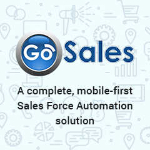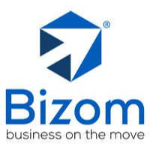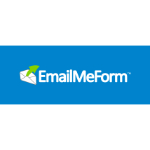TechnologyCounter provides genuine, unbiased real user reviews to help buyers make informed decisions. We may earn a referral fee when you purchase through our links, at no extra cost to you.
List of 15 Best Field Force Automation Software
Showing 1 - 15 of 70 productsMCi Apps Field Sales Automation Software is one of the best sales force automation software for pharma companies which can bring ease to your life by managing and automating most of your office tasks...Read MCi Apps Field Sales Automation Reviews
TraQSuite is a software designed to streamline your business operations. With its advanced features interface, TraQSuite simplifies task management, enhances communication, and boosts productivity. Say goodbye to complex systems and hello to efficien...Read TraQSuite Reviews
Effort is a software designed to simplify and streamline your everyday tasks. With its user-friendly interface and powerful features, Effort has the potential to transform the way you work. Say goodbye to tedious manual processes and hello to increas...Read EFFORT Reviews
GoSales is a software solution designed to streamline your sales process and boost your bottom line. With its user-friendly interface and powerful features, GoSales empowers businesses of all sizes to optimize their sales strategies and drive success...Read GoSales Reviews
Fieldproxy is a software designed to optimize and simplify field operations for businesses. With its user-friendly interface features, Fieldproxy revolutionizes the way businesses manage their field tasks, resulting in increased efficiency and produc...Read Fieldproxy Reviews
1Channel is a software for seamless project management and collaboration. With an easy-to-use interface and powerful features, 1Channel streamlines all aspects of project planning and execution. From task assignment to file sharing and team communica...Read 1Channel Reviews
BeatRoute is a solution for efficient and organized sales management. Streamline your sales processes, track client interactions, and optimize your teams performance with this powerful software. Say goodbye to tedious paperwork and hello to a streaml...Read BeatRoute Reviews
Toolyt is optimised for B2B Sales. Start with Free trial and go live in days.
Toolyt is a canny partner for your field officials which will help field officials to expand their profitability by utilizing custom and function driven work processes. The organization can follow deals and field tasks alongside deals personals exerc...Read Toolyt Reviews
Bizom is a solution designed to streamline and revolutionize your business operations. With its advanced features and user-friendly interface, Bizom empowers you to take control of inventory management, sales, and distribution, providing you with the...Read Bizom Reviews
FieldAssist is a tool that streamlines field operations and maximizes efficiency for businesses of all sizes. With its user-friendly interface features, FieldAssist empowers teams to plan, execute, and track tasks seamlessly, resulting in increased p...Read FieldAssist Reviews
SalesDiary is a efficient and innovative solution for all your sales tracking needs. With SalesDiary, you can effortlessly organize and manage your sales data, track your progress, and make informed decisions to boost your business. Say goodbye to ma...Read SalesDiary Reviews
URVA is a solution for managing your data with efficiency and ease. This powerful software is designed to streamline your workflow and make data organization a breeze. With URVA, stay ahead in the game and experience a whole new level of data managem...Read URVA Reviews
TeamHaven is a software solution designed to streamline team management and enhance collaboration. Our innovative platform enables businesses to efficiently manage tasks, schedules, and communication within their teams. With cutting-edge features and...Read TeamHaven Reviews
EmailMeForm, your go-to solution for creating online forms that meet all your business needs. With our easy-to-use platform, you can design customized forms for surveys, registrations, payments, and more, allowing you to streamline your data collecti...Read EmailMeForm Reviews
Badger Maps is a is a sales productivity tool designed to help businesses boost their field sales. With its intuitive interface features, Badger Maps streamlines the entire sales process, from planning routes to tracking leads. Say goodbye to wasted...Read Badger Maps Reviews
What Is Field Force Automation Software?
Field Force Automation Software is intended to help firms manage and coordinate their field operations, including the workforce that works outside of the office. This type of software is very valuable for businesses with staff that frequently work in the field, such as sales representatives, service technicians, and delivery drivers.
What Are the Top Key Features of Field Force Automation?
Field force automation (FFA) is an important part of managing a mobile workforce effectively. Field force automation solutions often include the following important features:
-
Mobile Accessibility: FFA platforms offer mobile applications that let field workers to access critical information, updates, and tasks while on the road via smartphones or tablets.
-
Real-Time Communication: They provide seamless contact between field workers and supervisors by utilizing tools such as instant messaging, voice conversations, and video conferencing to address concerns quickly.
-
Task Management: FFA systems enable managers to give tasks to field agents, define priorities, and watch their progress in real time, assuring timely completion.
-
GPS Tracking: Integration with GPS technology allows management to track field agents' locations, optimize routes, and guarantee they are where they need to be for efficient deployment.
-
Schedule Optimization: These solutions aid in schedule optimization by taking into account criteria such as location, talents, availability, and urgency, resulting in more efficient resource allocation.
-
Data Collection and Reporting: FFA platforms make it easier to collect data in the field, such as job progress updates, client information, and other important data, which may then be sent back to the central system for analysis.
-
Offline Functionality: Because field workers may work in places with limited network coverage, FFA systems frequently include offline capabilities, allowing them to access and update data even without an internet connection.
-
Integration Capabilities: Integration with other systems, such as CRM system, ERP (Enterprise Resource Planning), and inventory management systems, helps to optimize workflows and maintain data consistency throughout the firm.
-
Performance Analytics: FFA solutions provide information about field worker performance, such as project completion times, customer satisfaction ratings, and efficiency, allowing management to make data-driven decisions for improvement.
-
Compliance and Security: These solutions frequently contain elements that assure compliance with legislation and company standards, as well as strong security measures to secure sensitive data exchanged and kept within the system.
By embracing these important characteristics, field force automation systems enable businesses to optimize their mobile workforce, increase productivity, and improve customer satisfaction.
What Are the Benefits of Field Force Automation?
Field force automation (FFA) offers numerous benefits to organizations with mobile workforces. Here are some of the key benefits:
-
Increased Productivity: FFA improves procedures, automates repetitive tasks, and offers real-time updates, resulting in increased productivity for field personnel.
-
Optimized Resource Allocation: FFA promotes optimal resource allocation by dynamically assigning jobs based on parameters such as location, talents, and availability, hence reducing idle time and increasing utilization.
-
Improved Communication: FFA solutions enable continuous communication between field workers and supervisors over several channels, resulting in faster problem resolution, greater coordination, and more teamwork.
-
Enhanced Customer Satisfaction: FFA enables field personnel to respond to client requests faster, provide more accurate information, and provide better service, resulting in improved customer satisfaction.
-
Reduced Errors and Delays: Automation elements in FFA reduce manual errors and ensure that jobs are done on time, reducing delays and increasing overall operational efficiency.
-
Better Decision Making: FFA gives managers real-time data and insights on field operations, allowing them to make quick decisions, solve issues proactively, and optimize processes for better results.
-
Cost Savings: FFA assists enterprises in saving operational costs and achieving a higher ROI by optimizing routes, lowering fuel consumption, avoiding overtime, and increasing efficiency.
-
Compliance and Accountability: FFA systems frequently include tools for tracking and documenting field actions, assuring regulatory compliance and company policy adherence, and increasing field worker accountability.
-
Scalability and Flexibility: FFA systems can scale with the organization's expanding needs and adapt to changing requirements, allowing for operational expansions or alterations.
-
Competitive Advantage: Organizations that use FFA get a competitive advantage by providing faster reaction times, higher service quality, and more efficient operations than their competitors who still rely on manual processes.
Overall, field force automation empowers organizations to optimize their mobile workforce, improve operational efficiency, and deliver superior service to customers, leading to significant business benefits in terms of productivity, cost savings, and competitiveness.
How to Choose an Field Force Automation Software for Your Business?
Choosing the right field force automation (FFA) software for your business is essential to maximize its benefits and ensure a smooth implementation process.
Here are some steps to help you choose the best FFA software for your business:
-
Assess Your Business Needs: Begin by identifying your business's specific requirements and challenges. Consider the number of your mobile workforce, the nature of your field activities, your desired outcomes, and any existing pain points that must be addressed.
-
Research Available Solutions: Conduct extensive research on FFA software providers in the industry. Look for credible vendors with a track record of providing dependable solutions and receiving favorable customer feedback. Evaluate theirfeatures,functionalities, pricing models, and customer support.
-
Define Key Features: Determine the important features and capabilities that your FFA software must include. Consider features like mobile accessibility, real-time communication, task management, GPS tracking, reporting and analytics, integration capabilities, and security features.
-
Consider Scalability and Flexibility: Choose FFA software that can grow with your business and adapt to changing needs. Make sure the software is adaptable enough to changes in your operations and can handle future expansions or alterations.
-
Evaluate User Experience: User experience is critical to the successful implementation of FFA software. Look for solutions that are intuitive, simple to use, and user-friendly to both field workers and supervisors. Consider doing demos or trials to evaluate the software's usability and interface.
-
Check Integration Capabilities: Make sure the FFA software integrates seamlessly with your existing systems, including as CRM software, ERP, and accounting software. Integration capabilities are critical for maintaining data consistency, streamlining workflows, and increasing productivity.
-
Assess Security Measures: Data security is critical when selecting FFA software. Check if the program includes strong security mechanisms to protect sensitive information exchanged and stored on the system. Consider features like encryption, role-based access controls, and compliance certifications.
-
Review Customer Support: Consider the customer support provided by the FFA software supplier. Look for vendors who offer prompt customer service, including training, implementation assistance, continuous technical support, and frequent upgrades and maintenance.
-
Seek References and Recommendations: Contact other firms or industry peers who have used FFA software and ask about their ideas and opinions. References and testimonials can provide significant information about the software's performance and reliability.
-
Pilot Test or Trial: Before making a final decision, consider piloting or testing the FFA software with a small number of users or in a limited capacity. This enables you to assess its performance in real-world scenarios and determine whether it effectively satisfies your business requirements.
By following these steps and carefully evaluating your options, you can choose the right field force automation software that aligns with your business objectives, enhances operational efficiency, and delivers maximum value to your organization.
Field Force Automation Software Technology Trends
Field Force Automation (FFA) software technology trends continue to evolve rapidly, driven by advancements in digitalization, connectivity, and data analytics.
Here are some key trends shaping the landscape:
-
Mobile-First Approach: FFA solutions are increasingly being created with a mobile-first mindset, acknowledging the prominence of smartphones and tablets in field operations. Mobile apps give field workers real-time access to crucial data, allowing them to streamline processes and increase efficiency.
-
Integration with IoT: Integration with Internet of Things (IoT) devices is increasingly popular in FFA software. IoT sensors integrated in equipment or vehicles can give useful information on performance, usage patterns, and maintenance requirements, allowing for proactive decision-making and predictive maintenance.
-
AI and Machine Learning: Artificial intelligence and machine learning algorithms are being integrated into FFA systems to improve route planning, scheduling, and resource allocation. These tools can analyze massive volumes of data to detect trends, forecast future results, and recommend the best courses of action for field teams.
-
Augmented Reality (AR) and Wearables: AR technology and wearables are revolutionizing field service operations by allowing technicians to view information and receive remote support without using their hands. AR overlays can help workers complete complex tasks, whilst wearables track biometric data and issue safety alerts in hazardous areas.
-
Cloud-Based Solutions: Cloud-based FFA platforms are scalable, flexible, and accessible, allowing enterprises to manage field operations from any location with an internet connection. Cloud deployment also allows for seamless connection with other company systems, as well as automated updates and maintenance.
-
Focus on Data Security: The increasing volume of sensitive data gathered and transferred by FFA systems has led to a greater emphasis on data security. Encryption, authentication mechanisms, and compliance with industry standards (like as GDPR and HIPAA) are critical concerns for FFA solution suppliers.
-
Predictive Analytics for Maintenance: Predictive analytics skills are being used to optimize maintenance plans and minimize downtime. FFA systems can predict maintenance needs and schedule repairs before breakdowns occur by evaluating past performance data and equipment telemetry, hence increasing asset uptime.
-
Customer-Centric Features: FFA software has elements that improve the customer experience, including as real-time service tracking, appointment scheduling, and communication capabilities. Organizations may increase customer satisfaction and loyalty by keeping them informed and engaged throughout the service process.
-
APIs and Open Integration: FFA platforms are increasingly providing APIs and enabling open integration with third-party systems and apps. This allows for smooth data transmission between FFA software and other corporate systems such as CRM, ERP system, and accounting software, resulting in increased workflow efficiency and accuracy.
-
Focus on Sustainability: As businesses work to lessen their environmental impact, FFA solutions include features that optimize fuel use, reduce emissions, and prevent wasteful travel. Sustainability-focused functions include route optimization algorithms and environmentally friendly vehicle tracking choices.
Conclusion
To summarize, the field force automation software sector is rapidly evolving as a result of technical improvements and shifting business requirements. With a focus on mobile-first approaches, integration with IoT, AI, and machine learning capabilities, and a commitment to data security and customer-centric features, FFA solutions help organizations streamline field operations, increase productivity, and provide exceptional service.
As the landscape evolves, firms must embrace these trends in order to remain competitive and satisfy the needs of the modern corporate environment.







.png)







